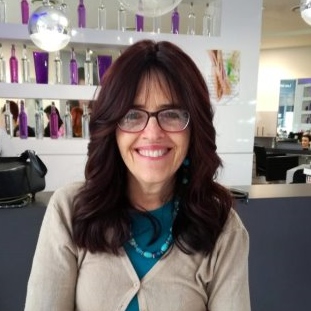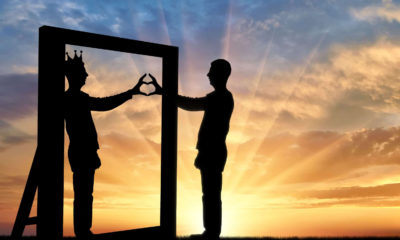
OpEds

Men also face gender-based violence
Published
2 years agoon
When we hear the phrase “gender-based violence” (GBV), we automatically think people mean violence against women. But this is a mistake. In fact, the term GBV is an umbrella term for any harm perpetrated against a person’s will that is based on a socially ascribed (gender) difference between males and females. Although most GBV is perpetrated by men and boys against women and girls, it doesn’t exclude males from being victims of GBV.
Sexual abuse of males is far more common than we think. The global statistic of one in seven males being victims of some form of sexual abuse in their lifetime is mind blowing. In our community, this issue is largely unacknowledged.
Most people we know would argue that this cannot be true for the Jewish community in South Africa. This reaction is understandable in light of the fact that there is massive under-reporting of male sexual abuse worldwide, and our community is no exception.
We have some understanding of how difficult it is for females to disclose abuse due to feelings of shame, guilt, and fear. And yet for men, it’s even harder. Male victims have to contend with masculine gender stereotypes.
Men are meant to be strong and tough and not show feelings, certainly not vulnerability, fear, or sadness. They have to break through the additional shame about having “let the abuse happen to them”, and counter their self-accusation of being weak and unmanly. It’s no wonder that most men carry their secret to the grave.
Secret or not, the damaging consequences of the abuse tend to plague victims throughout their lives. The research is unequivocal about the extremely damaging nature of sexual abuse. Men are at increased risk of health complications in later life such as heart attacks, strokes, diabetes, or cancer. The psychological and emotional consequences are clear, with increased anxiety and depression, addiction, and suicide. Post-traumatic stress disorder is common, with flashbacks and nightmares.
The damage is often evident at work, with difficulty concentrating and completing tasks. Interpersonal relationships are also negatively affected, particularly within an intimate-partner context. Victims may struggle to build lasting deep relationships. They may battle to find meaning and purpose in their lives, and experience a feeling of emptiness.
In addition to the above, the sexual identity of male victims is called into question. Because their bodies may have reacted with pleasure to the stimulation, they doubt their sexual orientation and question whether they are gay.
The abuser may have told them that they wanted the experience and that they liked it. The self-doubt and confusion that results can cause them immense suffering. It may lead to major relationship difficulties with their intimate partners. It’s vital to note that sexual abuse doesn’t determine one’s sexual orientation.
An experience of sexual abuse cannot make someone gay or bisexual. While the trauma of the abuse may very well cause a sexual identity crisis, there’s no link between the abuse and a person’s sexual orientation.
There are those men and boys who do choose to disclose their abuse. They summon the courage to share their pain with a chosen individual whom they trust. If that person doesn’t believe them or questions and doubts their story, this can be devastating for the victim and may close him down forever. This negative reaction is highly traumatising, often experienced as worse than the molestation itself.
Our community needs to do better if we don’t want to fail our men and boys. First and foremost, we must remove our blindfolds and face the reality that male sexual abuse has occurred and continues to occur in our community.
To reinforce this point, we are aware of a sexual perpetrator in the Johannesburg community who has molested and continues to molest adolescent boys with impunity. It’s almost an “open secret” that this man has a sordid history of committing sexual offences against boys. At this time, there have been no official reports so a case hasn’t been opened against him.
If our community were to support male victims, provide a safe space for them to come forward, encourage reporting, and remove all specious barriers to reporting, we would hopefully see a drastic change.
Some of the barriers put up by individuals in the community are the prohibitions of speaking loshen hara (gossip) and mesirah (the prohibition against one Jew handing over another Jew to the secular authorities).
It’s vital to know that these don’t apply when it comes to reporting child sexual abuse. Rabbi Eliezer Waldenberg, a major halachic decisor of the past century, ruled that when it comes to either physical or sexual abuse of children, it’s obligatory to report to the authorities with the aim of stopping or preventing it.
In truth, there are no real barriers to reporting except those which we may choose to adhere to in service of denial or unwillingness to get involved in unpleasant cases.
In a recent webinar titled Uncovering male sexual abuse in the Jewish community, one of the panellists, acclaimed expert Luke Lamprecht, noted that over the past two years, he had received no reports of sexual abuse from the Jewish community, which he found highly concerning. Though it had started to change in the past month, it’s clear that we’re not doing well when it comes to reporting.
Other than the Sidney Frankel case, which came to light five years ago, there have been no cases from within our community that have gone to court that we know of. The message we unwittingly give to perpetrators is, “Go ahead, no-one is watching, no-one will stop you, you are safe here”. This needs to change.
The changes that we are calling for may well be life-changing for victims who have battled in silence for far too long. For victims, child sexual abuse is akin to being a living murder victim.
As the Jewish world moves in a positive direction in regard to speaking out, condemning abusers, supporting victims, acknowledging the devastating impact of abuse, reporting to the authorities, and jailing perpetrators, so should we follow their lead in South Africa.
Let’s not wait, we’ve waited far too long already. And to the victims, you are survivors, and you are our heroes.
- Rebbetzin Wendy Hendler is the co-founder and director of Koleinu, the helpline for victims of abuse in the South African Jewish community.










